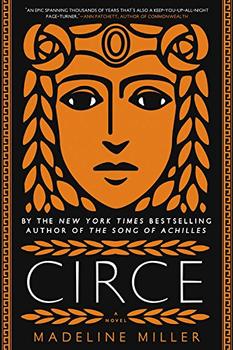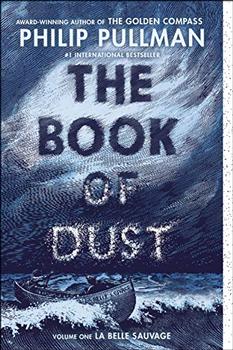Summary | Excerpt | Reviews | Beyond the book | Read-Alikes | Genres & Themes | Author Bio

In Salman Rushdie's words, Two Years Eight Months and Twenty-Eight Nights is "a wonder tale about the way we live now, a rich and multifaceted work that blends history, mythology, and a timeless love story to bring alive a world – our world – that has been plunged into an age of unreason. Inspired by 2,000 years of storytelling tradition yet rooted in the concerns of our present moment." Told from the perspective of over a thousand years from now, the novel describes events that take place in our near future (21st century), and connects them to a fictional fight between two 12th century philosophers. The timeless love story noted above is between a jinnia (a female jinni, an angel-like spirit that can take human and animal forms) and one of these philosophers, which hundreds of years later leads to the time of the strangenesses followed by the War between the Worlds.
Readers quickly learn that the title of this novel is simply another way of saying "one thousand and one nights." This reference to Scheherazade and the Arabian queen, who was a slave to telling stories in order to preserve her life, is one of the basic premises of this novel. Much like that famous work, this too is many stories within the same frame. Furthermore, Rushdie seems to be suggesting that if we don't heed the warnings that each of these tales teaches, we are leading ourselves to our own destruction. However, rather than preach and gesticulate, Rushdie gives us a vastly diverse group of magical beings. Through their actions and motivations, we get the point.
The more you read, the more you'll realize that Rushdie has many points to make. In fact, he takes on practically every one of the world's ills, and in bringing them all together, shows the combined disasters and havoc they are wreaking on humanity and this planet. From climate change to women's inequality, from greed to racial tensions, Rushdie crafts a human or jinn who is either using the negative aspects of the issue to an advantage or fighting to correct these injustices.
In keeping with the level of realism that even magical worlds dictate, we know that humans are practically powerless against such fantastical beings as jinn. Back to that love story – the jinnia falls in love with the human philosopher, and by procreating at an inhuman rate, she populates the earth with generations upon generations of descendants who have no idea of either their lineage or that they have magical powers. All they know is that they have no earlobes. When she comes back to lead the War between the Worlds, she identifies them, and they come to her aid.
At the very heart of Two Years Eight Months and Twenty-Eight Nights is the eternal conflict between good and evil, not just between groups or individuals, such as the theologian Ghazali and the philosopher Ibn Rushd (described in the Beyond the Book section), but also within ourselves. Rushdie uses this essential theme, along with variations upon it, in all of the assorted components of the novel, while adding a hefty dollop of humor, many well-placed smatterings of pop culture, and references to history from recent to ancient. Rushdie's writing style is a combination of lusciously meandering prose that is achingly perceptive and a wild frenzy that is unerringly infectious. This is why I have a feeling that the word "masterpiece" is going to be associated with this book, and not ironically or with any hyperbole.
![]() This review was originally published in The BookBrowse Review in September 2015, and has been updated for the
August 2016 edition.
Click here to go to this issue.
This review was originally published in The BookBrowse Review in September 2015, and has been updated for the
August 2016 edition.
Click here to go to this issue.

If you liked Two Years Eight Months and Twenty-Eight Nights, try these:

by Madeline Miller
Published 2020
Winner of the 2018 BookBrowse Fiction Award
The daring, dazzling and highly anticipated follow-up to the New York Times bestseller The Song of Achilles.

by Philip Pullman
Published 2019
Winner of the 2017 BookBrowse Award for Best Young Adult Novel
Philip Pullman returns to the parallel world of his groundbreaking novel The Golden Compass to expand on the story of Lyra
Your guide toexceptional books
BookBrowse seeks out and recommends the best in contemporary fiction and nonfiction—books that not only engage and entertain but also deepen our understanding of ourselves and the world around us.